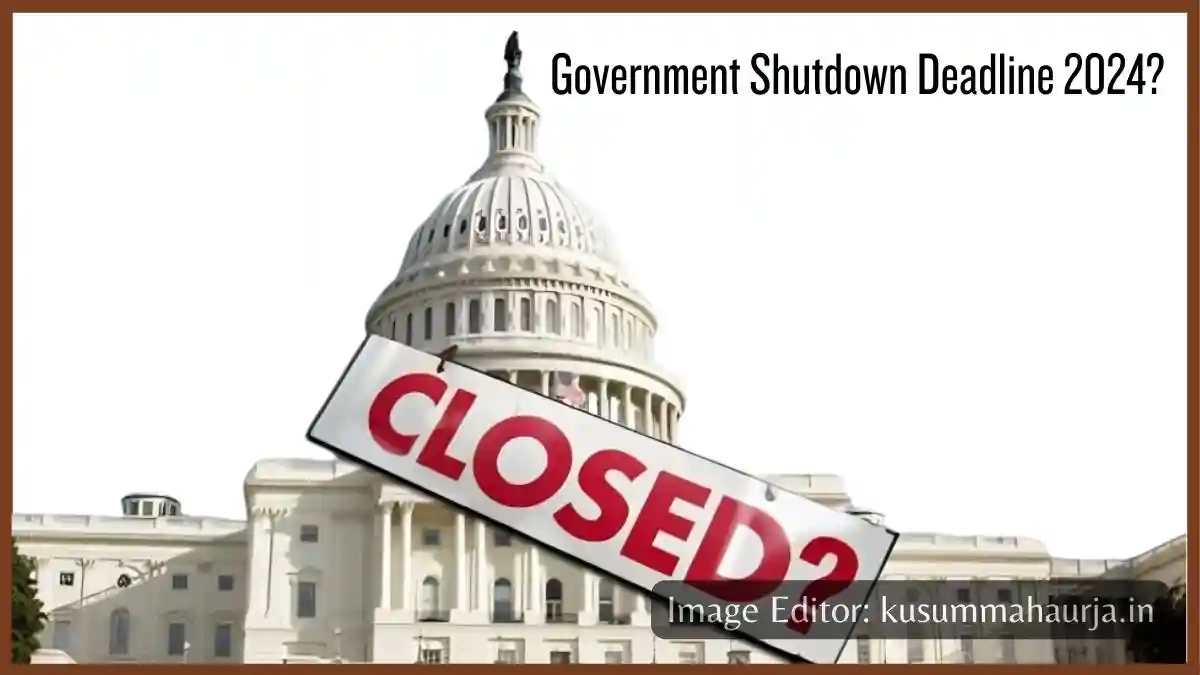In recent years, the topic of government shutdowns has become increasingly prevalent in political discussions. As we approach the year 2024, a significant deadline looms over the possibility of yet another government shutdown. In this article, we will delve into the details surrounding the government shutdown deadline of 2024, exploring the potential causes, consequences, and possible solutions.
Understanding Government Shutdowns
A government shutdown occurs when the federal government fails to pass a budget or a continuing resolution to fund its operations. This results in the temporary closure of government agencies and the furlough of non-essential government employees. Essential services such as national security and public safety continue to operate, but many others are severely impacted.
The Implications of a Government Shutdown
A government shutdown can have far-reaching consequences that affect the economy, government services, and the general public. Some of the key implications include:
- Economic Impact: A government shutdown disrupts the flow of funds, affecting businesses that rely on government contracts and services. It can lead to a decrease in consumer confidence, hamper economic growth, and potentially trigger a recession.
- Delayed Payments: During a shutdown, government employees may face delayed paychecks, causing financial hardships for individuals and their families.
- Reduced Services: Non-essential government services, such as national parks, museums, and passport processing, are temporarily closed, inconveniencing citizens and disrupting travel plans.
- Public Health and Safety: The shutdown can impact critical agencies like the Food and Drug Administration (FDA) and the Centers for Disease Control and Prevention (CDC), potentially delaying vital health inspections and response efforts.
Potential Causes of a Government Shutdown in 2024
While it is difficult to predict the specific circumstances that may lead to a government shutdown in 2024, several factors could contribute to such an event:
- Budgetary Disagreements: Political disagreements over budget allocations, spending priorities, and deficit reduction measures can hinder the passage of a budget, increasing the likelihood of a shutdown.
- Policy Deadlocks: Contentious policy debates, such as immigration reform or healthcare, can create impasses that prevent the passage of necessary funding legislation.
- Political Maneuvering: Sometimes, politicians may use the threat of a government shutdown as a bargaining tool to advance their policy objectives or gain concessions from opposing parties.
The Consequences of a Government Shutdown in 2024
If a government shutdown were to occur in 2024, the consequences could be significant:
- Economic Uncertainty: The uncertainty caused by a shutdown can disrupt financial markets, lead to job losses, and negatively impact investor confidence.
- Public Distrust: Government shutdowns erode public trust in elected officials and the functioning of the government, further exacerbating political polarization.
- Operational Disruptions: The shutdown would disrupt the operations of various government agencies, affecting services ranging from tax processing to veterans’ benefits.
- International Standing: A government shutdown can damage the perception of stability and reliability in the United States, potentially impacting foreign relations.
Possible Solutions and Mitigation Strategies
To prevent or mitigate the impact of a government shutdown in 2024, several strategies can be considered:
- Early Budget Negotiations: Encouraging lawmakers to engage in early budget negotiations can help prevent last-minute standoffs and provide more time for compromise.
- Continuing Resolutions: Implementing continuing resolutions can temporarily fund the government while negotiations on the budget continue, avoiding a complete shutdown.
- Bipartisan Cooperation: Fostering a spirit of bipartisan cooperation and compromise can help overcome political deadlock and facilitate the passage of funding legislation.
- Contingency Planning: Government agencies can develop contingency plans to minimize disruptions to critical services during a shutdown, ensuring that public health and safety are not compromised.
Conclusion
The government shutdown deadline of 2024 presents a potential challenge that policymakers must address to avoid the negative consequences experienced during past shutdowns. By understanding the causes, consequences, and potential solutions, we can strive to prevent future shutdowns and ensure the smooth functioning of our government and the well-being of our nation.
